- Home
- Tarryn Fisher
The Wives Page 25
The Wives Read online
Page 25
Once I made Seth the enemy in my mind, it was so easy to believe what Regina fed me. My baby had been healthy one day, moving and kicking, and then he’d just stopped. There was no medical reason found. Sometimes those things just happen, babies stop living.
“Dr. Steinbridge,” I say during one session. “Isn’t it funny that Seth never mentioned any of this the last time I was here?”
“He never claimed to be your husband, Thursday. When you came in last time it’s because Seth tried to end things with you. He admitted as much to me when I spoke to him privately, that he was married to someone else, and that you were his mistress. His wife, Hannah, figured out who you were on the last night you saw her. Do you remember?”
I remember having dinner with her, going to the bathroom and coming out to find her gone. I tell the doctor this.
“Seth figured out where you were and texted her. He told her to leave right away.”
“But when I got back to my apartment, he was there. His hand was beat up...”
“Yes, well, he claims he punched a wall when he found out you were stalking his wife. You attacked him when he told you it was over. I imagine he felt a sense of duty in visiting you here after that.”
“But he came to pick me up, take me home.”
“No,” the doctor says. “Your father picked you up and took you home.”
I laugh at that. “Are you kidding me? My father came to see me once after I got out of here. He doesn’t care about me.”
“Thursday,” Dr. Steinbridge says. “I was there. Your father came, brought you clothes, stayed with you for a week until you crushed Ambien into his dinner and snuck out to drive to Portland.”
“No,” I say. My limbs feel odd, like they’re not a part of me. The doctor has it wrong, or he’s lying. Maybe Seth got to him, paid him off to keep quiet...
“You were on heavy medication and still suffering from delusions.”
I want to laugh. How crazy do they think I am, mistaking my father for Seth?
I stand up suddenly, my movement so abrupt my chair falls backward and hits the ground with a metallic smack. Dr. Steinbridge stares up at me from where he’s sitting, his hands folded calmly on the desk. His eyes, shaded by those caterpillar eyebrows of his, look sad. I feel as if I’m evaporating, slowly being sucked away into oblivion.
“Close your eyes, Thursday. See it again as it really was.”
I don’t have to, I don’t have to close my eyes—because it’s playing out like a reel in my mind.
I see those days in my condo, except this time I see it the right way: my father hovering and handing me my pills, my father reading thrillers from my bookshelf, my father watching Friends with me on the couch.
“No,” I say again, my eyes filling with tears.
Seth hadn’t come to get me because he told me our affair was over and he’d gone back to his wife. Seth had abandoned me for the second time. I wasn’t enough. I wasn’t enough. I deserved to be alone. My wail is a siren, loud and shrill. I claw at my face, my arms, anything I can reach. I want to scrape off all of my skin, scrape until there is nothing left but muscle and blood, until I am merely a thing and not a human being. There is warmth on my fingertips when they charge in and grab me; my blood leaves stains on their scrubs.
In my first year as a nurse, a man came into the ER two weeks before Christmas with a crushed skull. His name was Robbie Clemmins and I swore I’d never forget his name, so tragic was his accident. A roofer who volunteered in his spare time at a nursing home, he’d been hanging Christmas lights on the outside of the building when he’d fallen two stories and landed on his back, smacking his head on the pavement. When someone found him, he was conscious, lying on his back and speaking in a calm, normal voice. He was reciting an oral report he’d given in the fifth grade about how to properly skin a squirrel. When they wheeled him into the ER he was sobbing, muttering something about his wife, though he wasn’t married. I remember seeing the concave in his head and wanting to throw up, and then later the X-rays in which his skull looked like a cracked egg. The impact had jarred his brain; chips of his skull entered the brain tissue and had to be removed during a surgery that lasted eight hours. Though we saved his life, we were unable to save who he was before the accident. I remember thinking how fragile we were as humans, souls covered in tender flesh and brittle bone; one wrong step and we became someone else entirely.
My brain is intact in the traditional way; I did not fall from a roof, though it seems I fell at some height from reality. Dr. Steinbridge has diagnosed me with a list of things I’d be embarrassed to repeat; the bottom line is that I have an unhealthy brain. I often sit in my room and picture my brain enflamed and oozing with my various diagnoses. There are days where I want to crack my own head open and remove my brain, and I find myself fantasizing about all the ways I can do it. I want to get better, but sometimes I can’t even remember what’s wrong with me. I am in my room one afternoon when I look up and see Dr. Steinbridge standing in the doorway. The serious look on his face tells me he has news.
“Regina Coele has requested a visit with you,” he tells me. “You don’t have to see her if you don’t want to.”
I’m touched; his interest in my case has become more tender than the stiff, formal way our relationship started.
“I want to talk to her,” I say. And it’s true—I’ve been waiting for this for a year, wading through the days until I could come face-to-face with the answers Seth’s first wife holds.
“I’ll put in the approval form. I think this may really help you, Thursday. To put things into perspective and to move forward.”
It’s two weeks before a nurse comes to tell me that Regina is here to see me. My heart pounds as I walk to the rec room, wearing sweats and a tank top, my hair piled on top of my head in a messy knot. When I glanced at myself in the mirror before leaving my room I looked relaxed...pretty, even.
Regina is dressed smartly in a button-down shirt and dress pants, her hair pulled away from her face in a chignon. I make my way over to where she sits, smiling at some of the nurses as I pass them.
“Hello, Thursday,” she says.
She eyes me up and down, a look of surprise on her face. She was expecting a mess. I am not a mess. I do yoga every day, and I eat my fruits and veggies—I’ve even been sleeping well. My body is healthy even if my mind is not. I slide into the seat opposite her and offer a smile. I imagine it’s a peaceful smile because I’m no longer twisting and turning with apprehension.
“Hi,” I say.
I’ve thought about Regina almost every day since coming back to Queen County. The thoughts aren’t angry or mean; it’s more of a distant curiosity. I am too medicated to be angry at this point.
Her nostrils flare as she watches me, both of us so carefully waiting for the other to speak.
“How have you been?” Icebreaker words!
I divert. “Why are you here?”
“I don’t really know,” she says. “I guess I wanted to see how you were.”
“To make yourself feel better or worse?”
Her pale skin flushes, strawberry-red patches appearing on her cheeks and chin. Regina’s game had a steep price; she may have meant to punish me, but Seth and Hannah will be paying for the rest of their lives.
“Both, I suppose. I never intended for things to go as far as they did...”
“Then why?” I ask.
“You ruined my life. I wanted you to pay for that.”
My thoughts run ahead, spiral back and then sink into a mire of remorse and guilt. I hadn’t known I was ruining her life...or had I? The reality I made up ruined everyone’s lives, but Regina wasn’t as innocent as Hannah had been. She’d used my weakness against me; she’d set me up.
“Well, you got what you wanted, didn’t you?”
“Yes,” she says finally. “I suppose I did.”<
br />
I’d been so eager to blame someone for the death of my baby that I’d never questioned her story, and Regina, so eager to punish me, had never imagined the outcome it would have.
“I knew you had issues with mental health, but I had no idea the stories you made up in your own head—about the polygamy.”
I look away, ashamed. Shame is a powerful reality check. Dr. Steinbridge said that it was shame that caused me to create my alternate state of reality. I was good enough for Seth to fuck, his mistress for both of his marriages, but not good enough to love.
The doctor is teaching me to cope with my shame, to deal with it. “Make decisions you can live with...” he says to me.
“I wanted to make you look crazy. I didn’t know you were crazy.”
I bristle at that. “You think you’re not?” I shoot back. “You think it’s normal to do what you did? I may be the one in here, but at least I can admit what I did. You told me he scared you to get me to further believe he was abusing Hannah. You made me believe he’d caused your miscarriage and mine. All to get me to go there that night.”
She stares at me, her mouth thinning into a straight line of denial. Of course she didn’t want to think she was as bad as me. I didn’t want to think of myself as the other woman; denial is a twisted, perverted soul-thinner.
“You’re the one who brought the gun. You shot Seth,” she hisses. “I wanted you punished for ruining my life—I didn’t want Seth to get hurt.”
I’m enraged by the disgust I hear in her voice. I close my eyes, willing myself not to be angry. I hear Dr. Steinbridge’s words: “You are only responsible for yourself.”
“Yes. But you could have helped me and you chose to use me instead. You handed me the delusion.”
Regina’s face is a mask of self-righteousness. My insides ignite, fingertips tingling. Seth and Hannah did not deserve what happened to them. Seth was a cheater; he’d had an affair with me when he was married to Regina, and then, when I couldn’t have his children, he’d moved on to someone else: Hannah. But he’d continued his affair with me even after he’d married Hannah. The rejection had caused me to lose touch with reality. Seth would never walk again; my bullet passed through his spine. He would never chase their child across a park, walk her down the aisle... I am responsible for that. The pain of realization hurts my stomach.
“Were you lying when you told me that Seth was violent with you? You said he pushed you against a wall...”
“No, that wasn’t a lie,” she says. “Seth has a temper.”
My ear stings; it always stings when I think of Seth. I think of Hannah and her bruises, once again wondering if she was lying to protect him. I suppose I’ll never know the truth. There’s comfort in knowing he’s in a wheelchair. He’d not be able to hurt a woman physically again, and his days of cheating are over.
“I’m glad we both got away from him,” I say.
“No, no, no,” Regina says. “This isn’t a little club. I’m not like you.” She laughs. “You’re crazy.”
And that’s when I think of Robbie Clemmins and his broken brain, his skull smashed to pieces, his life altered forever. He was a different kind of broken than I am, just like Regina. Except I have been sent here to pay and she is still lying. Her laughter hurts my ears. I cover them with my palms, pressing hard, trying to block out the sound. It’s the same as that day in my kitchen, Seth calling me crazy, looking at me with disgust in his eyes. I’m shaking when I rear back, slamming my head into Regina’s nose. The force slams my jaw together. I bite through my bottom lip and feel the shards of a broken tooth. She screams, a hand reaching out to touch the spray of blood rushing from her nose. I jump over the table, knocking her to her back. Her head hits the floor and I see the shock and panic in her eyes—eyes wide with fear. Robbie didn’t know what was happening to him when he lay on his back, his brain dying, but Regina will. I cradle her head between my hands and slam it into the floor. I can hear shouting, so much shouting.
“Help!” someone screams. “She’s going to kill her!”
I am helping. I’m helping myself.
* * *
ACKNOWLEDGMENTS
Gratitude to my editor, Brittany Lavery, and all of her colleagues at HarperCollins. My agent, Jane, you’re a soul saver. I was feeling very deflated before you found me. Miriam, your direction in helping me shine up this book was invaluable.
Rhonda Reynolds, you’ve called me many things over the years: wild child and creative genius. But my favorite thing you’ve called me is daughter-in-law. Thank you for answering all of my questions about nursing and hospitals and psych wards. I love you.
Traci Finlay, this journey started with you. Thank you for always being willing to read, help and fix a plot hole. Your direction and thoughts on this story were what pushed me to finish it. You’re cooler than me, but not one to rub it in my face.
Cait Norman, the other nurse in my life. I know some of my questions scare you. You’re a good sister.
The PLNs! The best girl gang.
Colleen Hoover, Lori Sabin, Serena Knautz, Erica Rusikoff, Amy Holloway, Alessandra Torre, Christine Estevez and Jaime Iwatsuru. Cindy and Jeff Capshaw. Scarlet, Ryder Atticus and Avett Rowling King—Mama loves you. Joshua, for carrying me out of every bad place and never complaining about it. You’re the best human I’ve ever known.
The Wives
Tarryn Fisher
Reader’s Guide
Discussion Questions
Thursday has a complicated marital situation, one that differs from typical plural marriages. Do you think you could ever share your spouse with two other partners this way?
How tempted would you be to find out about the other spouses, even if you’d promised not to? Would you break that promise?
What kinds of things does Thursday sacrifice in order to be with Seth?
Discuss this story in light of current news stories about women’s rights and the current feminist moment.
How much of Thursday’s online snooping do you think is justified?
How much sympathy did you have for Seth? Why? Did your feelings change as the story developed?
What did you make of the relationships between the women in this story—not just the wives, particularly Thursday and Hannah, but between Thursday and her friends Lo and Anna? Why do you think Thursday doesn’t have more female friends?
How do you think Thursday’s relationship with her parents informed her own marriage? What do you think about Seth’s relationship with his parents?
What did you make of the ending?
A Q&A with Tarryn Fisher
Authors often get asked about their inspiration for their books, but this is such a unique thriller! How did you come up with the idea for it?
My husband and I used to watch this show on Netflix about a man whose wife comes back to life five years after dying of cancer. Except she comes back to find out that he’s married to her best friend, and her best friend is nine months’ pregnant. I just have to tell you how stressful this show was to watch. I found myself rewriting the story in my mind, asking myself what I would do. And so for weeks I’d pound my husband relentlessly with questions. What would he do if I died and came back to life, and he was remarried? Who would he love more? Would he leave her for me? And you know what he said? “I’d just stay married to you both.” Wrong answer. I wanted him to choose me, but what if he couldn’t? What if it was more complicated than that? When I get that obsessed about an idea I know I have to find a way to write about it. That’s all I need: a scenario, and a rush of emotion, and I have a book idea.
Thursday has a singular voice. What was it like to develop that?
It’s always been my priority to listen very closely to what women have to say. For Thursday I assembled their stories into one voice. We suffer similarly.
You’ve published a lot of
romance in the indie space, but this is your first thriller! How was it different to construct this kind of story? Did you find it easier? More difficult?
I am a character-centered writer, so I create a personality and then I drop that personality into a situation. It doesn’t really matter if you’re writing about how love kills people, or how other people kill people; a well-developed character will drive the plot.
Speaking of the indie space, you’ve had quite a lot of success in that sphere. What made you go with a traditional publisher this time, and how do these two experiences differ?
I think as an artist I’m unhinged, and so I write about unhinged people. Seven years ago “chick lit” was a thing. Women wanted to read “light” books and that’s what publishers were looking for. As a result my rejection letters all said the same thing: your protagonist is too villainous, women won’t relate. I laughed and then I self-published to prove them wrong. In the indie world women embraced my morally corrupt characters; they leaned in to the unreliable narrator. Meanwhile Gillian Flynn, Paula Hawkins, Caroline Kepnes and a handful of other female writers were starting the trend in traditional publishing. There wasn’t space for a writer like me ten years ago, and now there is. So here I am.
What or who are some of your influences as a writer?
Stephen King. The literary majesty. The thing about Stephen King is that he could write in any genre. Any. He’s an intellect; he has a hawk’s eye for human nature. If he wanted to write a Pulitzer Prize—winning novel he could. He writes about the things we don’t want to acknowledge in ourselves: the raw ugly things. He writes about it with such ease it’s exciting. You can’t sit at better knees when learning how to write. All hail.

 Jackal
Jackal F*ck Love
F*ck Love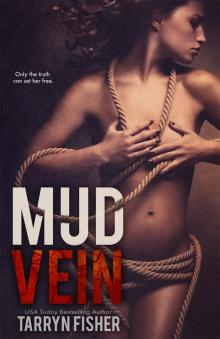 Mud Vein
Mud Vein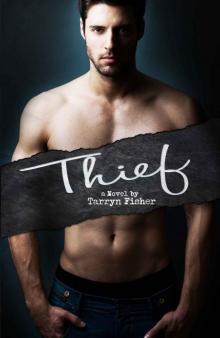 Thief
Thief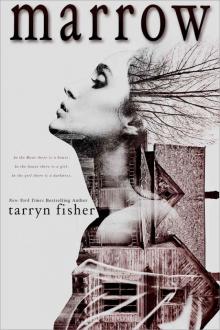 Marrow
Marrow Dirty Red
Dirty Red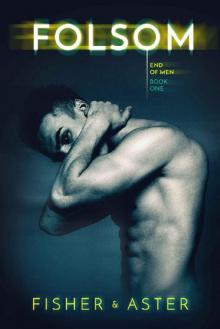 Folsom
Folsom The Opportunist
The Opportunist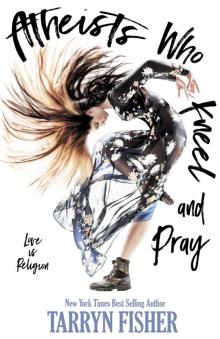 Atheists Who Kneel and Pray
Atheists Who Kneel and Pray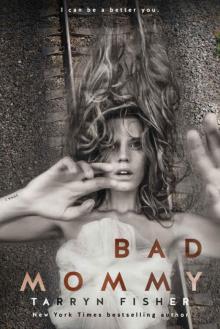 Bad Mommy
Bad Mommy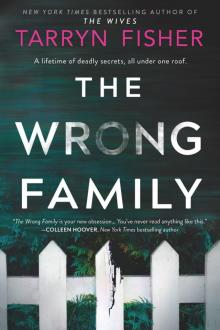 The Wrong Family
The Wrong Family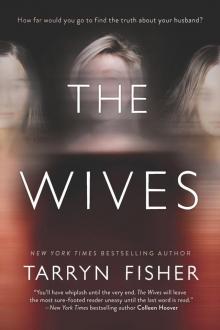 The Wives
The Wives Jackal (The End of Men Book 2)
Jackal (The End of Men Book 2)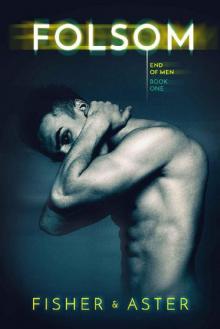 Folsom (The End of Men Book 1)
Folsom (The End of Men Book 1)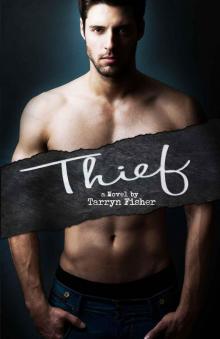 Thief (Love Me With Lies #3)
Thief (Love Me With Lies #3)